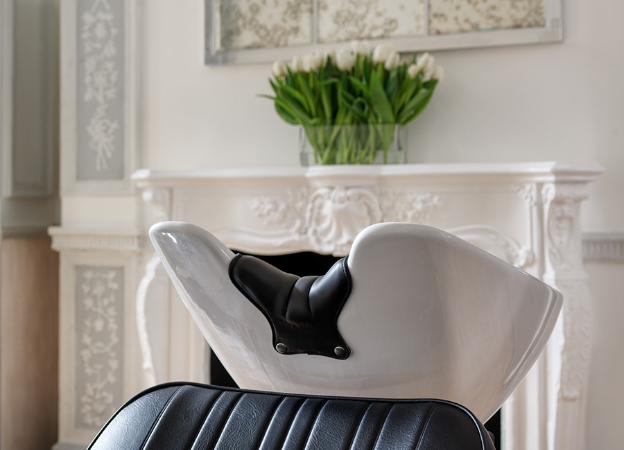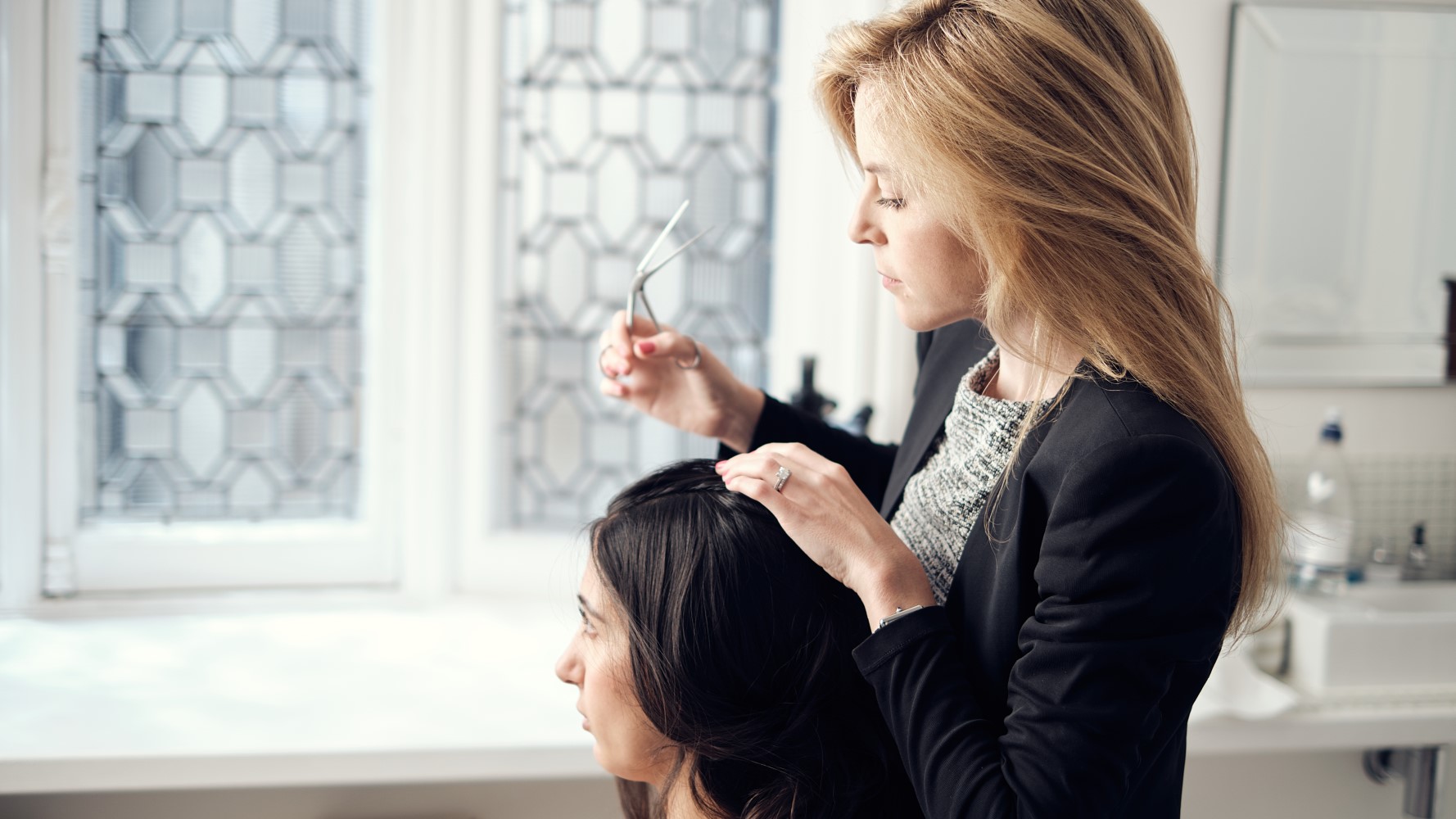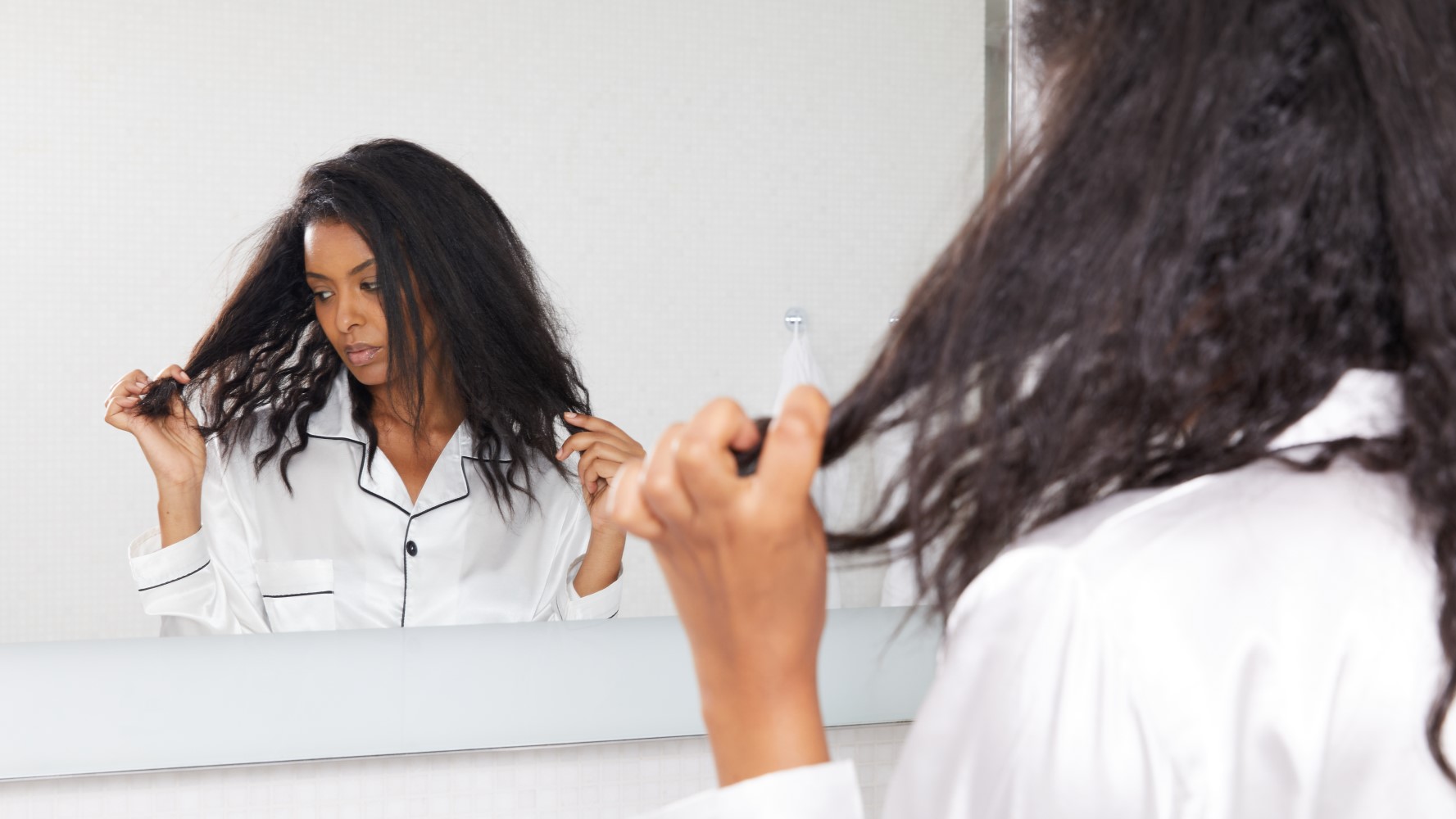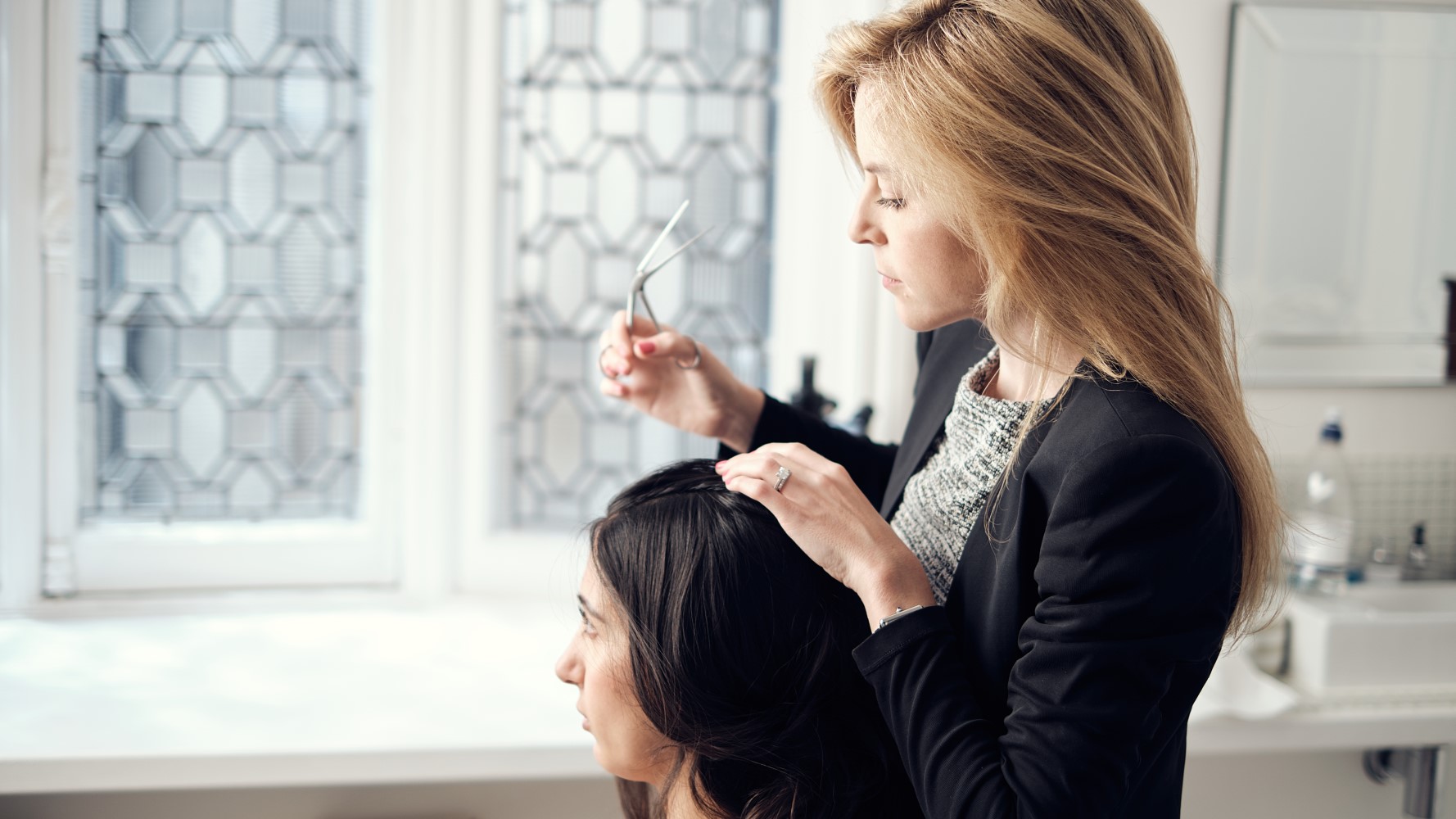In fact, many women and men cite hair loss as the side effect they dread most about undergoing cancer treatment.
At Philip Kingsley, we understand how traumatic the experience of losing your hair can be. We understand it can act as a signal to the world (and a constant reminder to yourself) that you have cancer. Furthermore, we know how important hair can be to your sense of identity: it is not just a style — it’s a part of who you are.
Rest assured that hair you lose as a result of chemotherapy will almost always grow back. This may take time — and your hair and scalp will likely be sensitive for a few months — but you will hopefully end up with a full, healthy head of hair again. Our expert Trichologists are here to help advise you through every step of the process.
Why does Chemotherapy Cause Hair Loss?
Chemotherapy works by targeting and destroying rapidly growing cells, such as cancer cells, but often, these drugs cannot distinguish between cancer cells and other rapidly dividing cells in your body. Therefore, because hair cells are some of our most active, fastest dividing cells, they are often attacked and killed by chemotherapy drugs. Hair loss associated with chemotherapy is known as Anagen Effluvium, since the hair loss happens due to a sudden interruption of the growing (anagen) phase of the hair cycle.
What Will Happen to Your Hair and Scalp During Chemotherapy?
Some chemotherapy drugs do not cause hair loss, but others almost always do. We suggest you ask your doctor if the type of drug you are taking is known to result in alopecia.
Hair loss from chemotherapy usually begins 2-4 weeks after starting treatment. Your scalp may feel sensitive, and your hair may fall out rapidly or gradually, depending on which drug you are taking, as well as the dosage and your sensitivity to it.
Hair fall will usually stop about 1-2 weeks after your chemotherapy cycle has ended. In most cases, it will then begin to grow back.
At first, your hair may grow back a different texture from before — for example it may be fluffier, curlier, or a different colour — but these changes are most often temporary.
Can You Prevent Hair Loss from Chemotherapy?
Many different chemotherapy drugs exist; some never cause hair loss, while some almost always do. The drug you are treated with is determined by the type of cancer you have, as well as what your doctors believe will give you the best medical results.
Currently the only way to reduce hair fall caused by chemotherapy, is by using a cold cap, which is a special hat worn during treatment. Cold caps are designed to cool down your scalp, either using a cold gel or a refrigerated cooling machine, and are thought to inhibit the flow of the chemical therapy around your hair follicles.
Some people find that cold caps significantly reduce hair loss, while others report little benefit. Unfortunately, cold caps can be very heavy and uncomfortable, and can often cause headaches. They are also not suitable for use with some types of cancer. How effective a cold cap is will depend on the drug you are being given, and your sensitivity to it.
Coping with Hair Loss During Chemotherapy
Losing your hair during chemotherapy is never an easy prospect to face, but some people find that one or more of the below options may help manage the stress it can cause:
- If you have long hair, you may prefer to adopt a shorter style before beginning chemotherapy. This will reduce the length and volume of shed hairs you may see in the shower or on your pillow. (It will not, however, reduce the number of hairs you lose.)
- You may decide to shave your head before beginning chemotherapy, to help gain a sense of control. Some of our Clients find it less distressing when they cannot see the progression of their hair fall.
- Wearing a scarf, hat, hairpiece or wig may help boost your morale. Modern wigs can look very natural, and there are a wide range of colours and textures to choose from. Wearing wigs will not inhibit hair growth, however we do advise you to leave them off whenever possible, to let your scalp breathe.
- Many patients like to choose and purchase a wig before starting treatment, to help them feel prepared, so this is something you might want to consider too.
Caring for Your Hair and Scalp During Chemotherapy
Like all skin, your scalp contains oil and sweat glands, so even if you lose all your hair or shave it off, we still recommend daily shampooing with a mild shampoo (for example, our No Scent No Colour range) to cleanse away sweat and oil and keep your scalp feeling clean. Please do not worry — gentle shampooing with a good product will not make your hair fall out any faster.
If you do not lose all your hair during chemotherapy, your skin may still be sensitive, so we recommend opting for mild products, such as our No Scent No Colour range.
Hair Regrowth After Chemotherapy
In 99% of cases, your hair will grow back after chemotherapy, but in a minority of cases, regrowth may only be partial. You may find that hair grows back a different colour, shape and/or texture, but these changes are most often temporary and should settle within about six months.
Initially, your hair is likely to grow back fine and fluffy, but this is also temporary. Once your follicles are back working at full steam, they will eventually produce mature hairs again.
Caring for Your Hair After Chemotherapy
As soon as your hair grows back, you can start using conditioner and styling products alongside your shampoo. What’s more, having your hair styled by a professional hairdresser who knows you and understands your situation, can also be helpful and reassuring.
During the first few months, we advise taking care when styling, to avoid pulling out and breaking any new, fluffy hairs. We also recommend you avoid head massages during this period, as these newly emerging hairs may be more susceptible to mechanical damage.
Colour-treating your hair can also be resumed once you are given the go-ahead from your doctor, and your follicles are once again producing mature (non-fluffy) hairs. Please make sure you perform a skin patch test first, regardless of applications before chemotherapy, as your skin might have developed new sensitivities. This is particularly important when using permanent hair dyes.
You can also begin to perm or highlight your hair once it has grown. While perms and highlights do not cause allergies, we strongly advise you conduct a strand test on the first occasion after treatment, as new hair may react differently than it did so before.
What We Do for Post-Chemotherapy Hair at Philip Kingsley
Elizabeth Cunnane-Phillips, Philip Kingsley Trichologist, New York says:
“After chemotherapy, your follicles are going to want to grow hair again. We may also suggest hair-healthy changes to your diet, along with nutritional supplements if needed. All of this will encourage your hair to grow back as strongly and as quickly as it can.”






